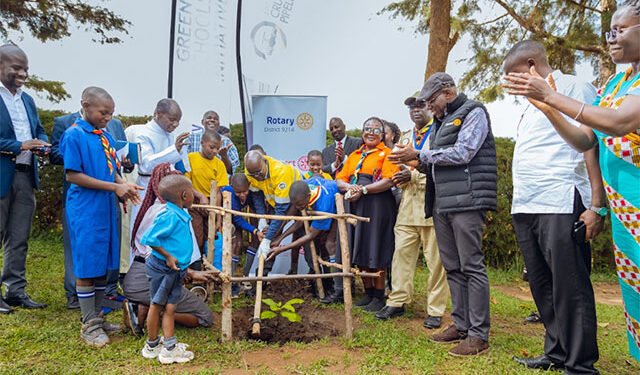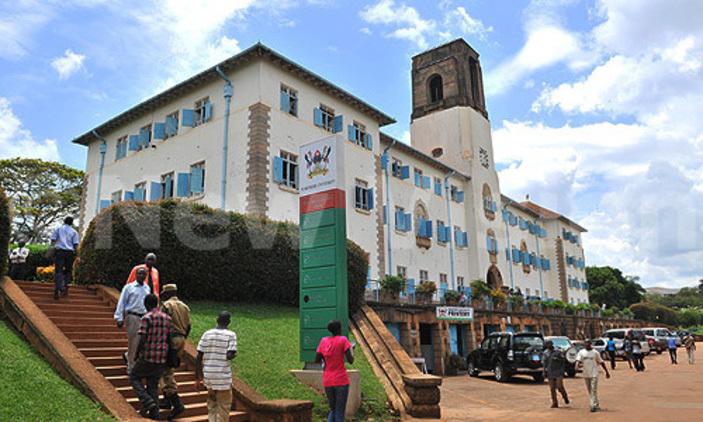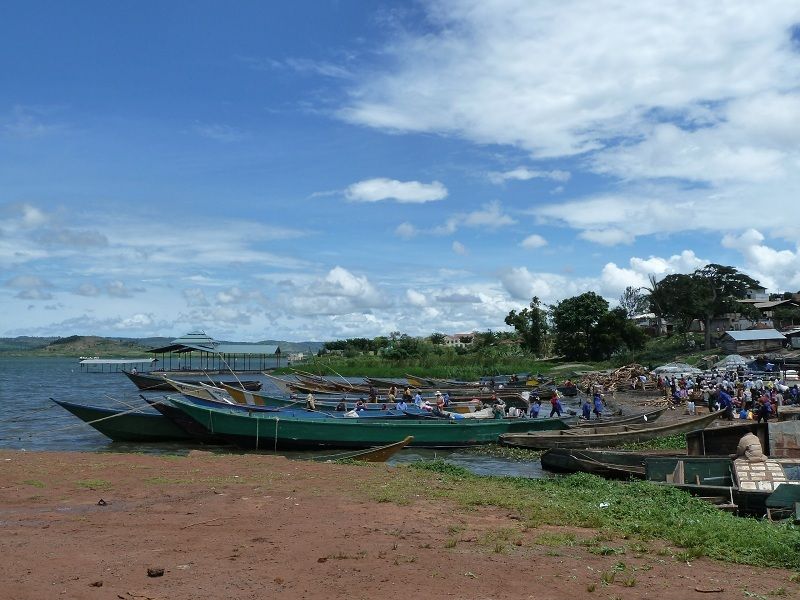The East African Crude Oil Pipeline (EACOP) Ltd., working jointly with Rotary Uganda, has rolled out the EACOP Green Schools Initiative at St. Kizito Primary School in Kasasa Sub County, Kyotera District. The programme, implemented under EACOP’s Social Economic Investment Programme, is designed to turn learning institutions along the pipeline corridor into champions of sustainability and environmental responsibility.
The launch comes after the two organisations signed a Memorandum of Understanding (MoU) in August 2025 to implement the project across ten districts traversed by the pipeline. These include Hoima, Kikuube, Kakumiro, Mubende, Kyankwanzi, Lwengo, Kyotera, Rakai, Sembabule, and Gomba.
The Green Schools Initiative aims to equip pupils with hands-on environmental skills and values that foster lifelong conservation habits. Planned activities include installing solar power solutions, creating green spaces featuring fruit and vegetable gardens, improving waste management, setting up sanitation and handwashing facilities, harvesting rainwater, and running awareness drives on environmental protection, health, safety, and hygiene.
Speaking at the launch, EACOP Deputy Managing Director JB Habumugisha underscored the importance of nurturing environmentally conscious young people. “This initiative is a testament to our commitment to sustainable development. By integrating green practices within schools, we are meeting immediate community needs while shaping a generation that values environmental protection and sustainable living.”
Rotary Uganda leaders echoed this commitment. Geoffrey Kitakuule, Governor of Rotary District 9213, noted that partnering with EACOP reinforces Rotary’s mission of environmental protection and community empowerment. “Schools give us direct access to the young people who will become tomorrow’s environmental champions,” he said.
Christine Kyeyune Kawooya, Governor of Rotary District 9214, added that the initiative will inspire pupils and teachers to lead efforts toward a greener and healthier environment. “This is more than just a project; it is a movement for a sustainable future,” she said.
The launch event brought together officials from EACOP, Rotary Uganda, local government, and school leaders, all of whom praised the collaboration for providing practical and transformative benefits to both education and environmental conservation.

















